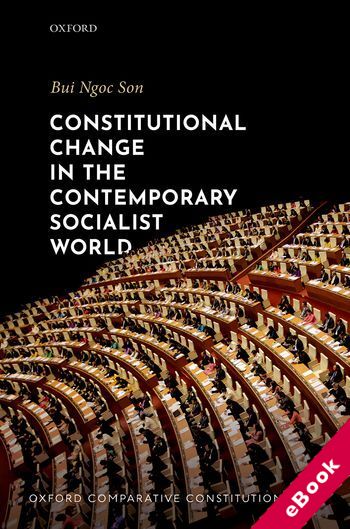
The device(s) you use to access the eBook content must be authorized with an Adobe ID before you download the product otherwise it will fail to register correctly.
For further information see https://www.wildy.com/ebook-formats
Once the order is confirmed an automated e-mail will be sent to you to allow you to download the eBook.
All eBooks are supplied firm sale and cannot be returned. If you believe there is a fault with your eBook then contact us on ebooks@wildy.com and we will help in resolving the issue. This does not affect your statutory rights.
After the collapse of the Soviet bloc, there are only five socialist or communist countries left in the world – China, Cuba, Laos, North Korea, and Vietnam – which constitute about one-quarter of the world>'s population. Yet, there is little scholarship on their constitutions. These countries have seen varying socioeconomic changes in the decades since 1991, which have led in turn to constitutional changes. This book will investigate, from a comparative and interdisciplinary perspective, how and why the constitutional systems in these five countries have changed in the last three decades.
The book then breaks the constitutional changes down into four questions: what are the substantive contents of constitutional change, what are the functions, what are the mechanisms, and what are the driving forces? These questions form a framework to process the changes the five countries have gone through, such as making new constitutions, amending current ones, introducing more rights, allowing citizens to engage in changes, enacting legislation, and defining the constitutional authority of the three state branches and their relationship with the Communist Party. While all five countries have adapted their constitutional systems, the degree, mechanisms, and influential factors are not identical and present considerable variations. This book examines and explores these differences and how they developed.
Constitutional Change in the Contemporary Socialist World offers a comprehensive and holistic view of an understudied and overlooked area of constitutional law, essential for anyone studying or working in law, politics, or policy.